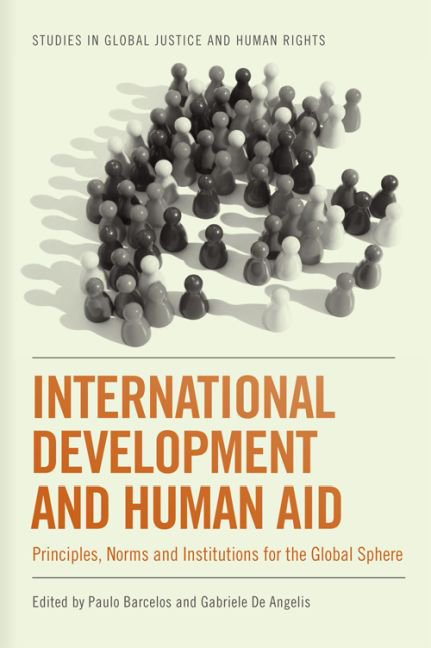Book contents
- Frontmatter
- Contents
- List of Contributors
- Acknowledgements
- 1 Justice in a Complex World: An Introduction
- Part I Human Rights and the World Economy: Questions of Scope
- Part II The Applicability of Global Principles – Some Contemporary Dilemmas
- 4 Toward Another Kind of Development Practice
- 5 Three Approaches to Global Health Care Justice: Rejecting the Positive/Negative Rights Distinction
- 6 Restitution and Distributive Justice
- Part III Justice and International Institutions
- Index
5 - Three Approaches to Global Health Care Justice: Rejecting the Positive/Negative Rights Distinction
from Part II - The Applicability of Global Principles – Some Contemporary Dilemmas
Published online by Cambridge University Press: 26 April 2017
- Frontmatter
- Contents
- List of Contributors
- Acknowledgements
- 1 Justice in a Complex World: An Introduction
- Part I Human Rights and the World Economy: Questions of Scope
- Part II The Applicability of Global Principles – Some Contemporary Dilemmas
- 4 Toward Another Kind of Development Practice
- 5 Three Approaches to Global Health Care Justice: Rejecting the Positive/Negative Rights Distinction
- 6 Restitution and Distributive Justice
- Part III Justice and International Institutions
- Index
Summary
INTRODUCTION
There are two questions that we need to answer when embarking on a discussion of global duties to aid. First, ‘What do we need to do to discharge our obligations to people in other countries?’, which is a question about what needs to be done as much as it is about what duties we actually have.
The second, and more philosophically interesting, question is ‘Why do we have these obligations?’ This relates to the reasons we have such duties and the justifications that exist for our global duties to aid. This is a prior question because the way in which we answer it will affect the way that we can answer the first question posed. Without an adequate definition of the reasons for our duties, we will struggle to provide a comprehensive description of what those duties are.
In this chapter I focus on three cosmopolitan approaches to answering this second question in the context of global health care justice: Pogge's negative duties based approach (Pogge 2008: 15), Brock's minimal needs view (Brock 2009: 54–5) and Henry Shue's model of basic rights (Shue 1980: 18). While these approaches share a common focus on attempting to justify the existence of global duties to aid, held by the wealthy and owed to the global poor, each offers a distinct interpretation of why such duties exist and suggests a range of options for fulfilling them. Importantly, while I argue that Shue's approach to our global duties is the most effective of the three, I consider they all offer important insight into the problem of global poverty and provide a variety of possible practical solutions to this problem.
I will argue that Shue's model offers the most comprehensive justification of global duties and in fact can be seen as accommodating or incorporating the other two approaches. The efficacy of Shue's approach can be seen to have its foundation in his rejection of the positive/negative rights dichotomy. Shue's rejection of this widely, and mistakenly, held view of rights and duties is central to his argument for global duties to aid, as I discuss below.
- Type
- Chapter
- Information
- International Development and Human AidPrinciples, Norms and Institutions for the Global Sphere, pp. 108 - 126Publisher: Edinburgh University PressPrint publication year: 2016



